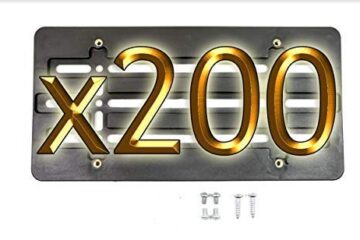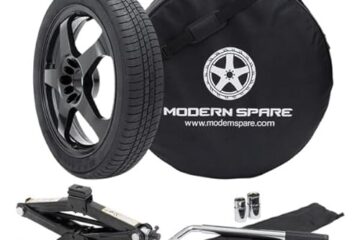Battle of the Oils: 75W 85 Vs 75W 90
75w 85 and 75w 90 are both types of gear oil mainly used in automotive transmissions and differentials. 75w 85 is thinner and provides better fuel efficiency, while 75w 90 is thicker and offers enhanced protection under high temperature and load conditions.
Gear oil is an important lubricant used in the transmissions and differentials of vehicles. The letters and numbers in the names of gear oils indicate their viscosity rating, which is an essential feature that determines their behavior under different operating conditions.
Among the many types of gear oils available in the market, 75w 85 and 75w 90 are two popular choices. Although both have 75w on their names, they differ in viscosity, and each offers certain advantages over the other. In this article, we will delve into the differences between these two types of gear oils and when to use one over the other.
Differences Between 75W 85 And 75W 90 Oils
Viscosity ratings 75w 85 and 75w 90 oils can be confusing. The first measurement in the labels indicates the oil flow at cold temperatures, hence the w. the second number measures the flow at operating temperatures. The 75w 85 oil performs best in cooler climates, whereas the 75w 90 oil is ideal for hotter conditions.
The difference in viscosity ratings comes from the variation in thickness of both oils at high temperatures. In colder regions, the 75w 85 is thin enough for easy lubrication, and the thick 75w 90 oil is not practical. While the 75w 90 flows well on hot summer days, the 75w 85 is too thin and unable to protect the engine sufficiently.
It is essential to choose an oil that performs well in the temperature range in your location for superior performance and engine longevity.
Pros And Cons Of 75W 85 Oil
75w 85 oil serves as an excellent lubricant for vehicles. It is an efficient and affordable option. The oil performs well under a wide range of climatic conditions, including high-temperature situations. Its low viscosity enables smooth gear shifting, and the oil reduces wear and tear on gear surfaces.
Benefits of using 75w 85 oil include greater fuel efficiency and reduced carbon emissions. However, there are also some drawbacks. One disadvantage is that it can lead to increased engine noise due to the thin nature of the oil. Additionally, 75w 85 oil may not be readily available in stores, making it difficult to obtain.
Ultimately, the pros and cons of 75w 85 oil should be considered before making a purchasing decision.
Pros And Cons Of 75W 90 Oil
75w 90 oil is a popular choice for vehicles due to its various advantages. This type of oil works well in high temperatures and provides better protection against wear and tear. It also reduces friction between engine parts and improves fuel economy.
However, there are also some drawbacks to using this oil. 75w 90 oil is not suitable for use in colder temperatures, which can lead to engine damage. Also, it may not be the best choice for vehicles with high mileage or those that have experienced significant wear and tear.
Despite these drawbacks, the benefits of 75w 90 oil make it a popular choice among car owners and mechanics. It is important to consult with a professional before choosing the best oil for your vehicle.
Real World Scenarios
In real world scenarios, both 75w 85 and 75w 90 oils have their own advantages. When it comes to extreme cold or freezing temperatures, 75w 85 oil would be best used. It has a lower viscosity, which makes it easier to start up a cold engine.
Additionally, it minimizes engine wear during cold starts. On the other hand, 75w 90 oil is best used in high temperature conditions. It has a higher viscosity which provides better lubrication and protection for the engine at higher temperatures. Moreover, it promotes smoother engine operation and reduces heat-related wear and tear.
It is important to choose the right oil based on specific situations to achieve maximum efficiency and extend engine life.
Frequently Asked Questions Of 75W 85 Vs 75W 90
What Is The Difference Between 75W 85 And 75W 90?
75w 85 oil is thinner in viscosity than 75w 90 which translates to a better fuel economy but poorer performance and longevity.
Can I Use 75W 85 In Place Of 75W 90?
It is not recommended to use 75w 85 in place of 75w 90 as it may affect the performance and longevity of the engine.
When Should I Use 75W 90 Instead Of 75W 85?
Use 75w 90 when you need better engine performance and longevity especially in high temperatures or heavy load conditions.
Conclusion
Finally, 75w-85 and 75w-90 are two common gear oils that are used in modern vehicles. Both are effective in reducing friction and ensure smooth running of the gears. While there isn’t much of a difference between the two oils, it is important to note that the differences in viscosity and thickness can affect performance.
It is always important to consult with your vehicle’s manufacturer and adhere strictly to their recommendations on what type of oil to use. Remember, using the wrong oil can cause severe damage to your engine and void your warranty. At the end of the day, the choice between the two oils comes down to personal preference and the specific needs of your vehicle.
Overall, whichever option you choose, be sure to follow the required standards and guidelines to experience maximum benefits.





0 Comments